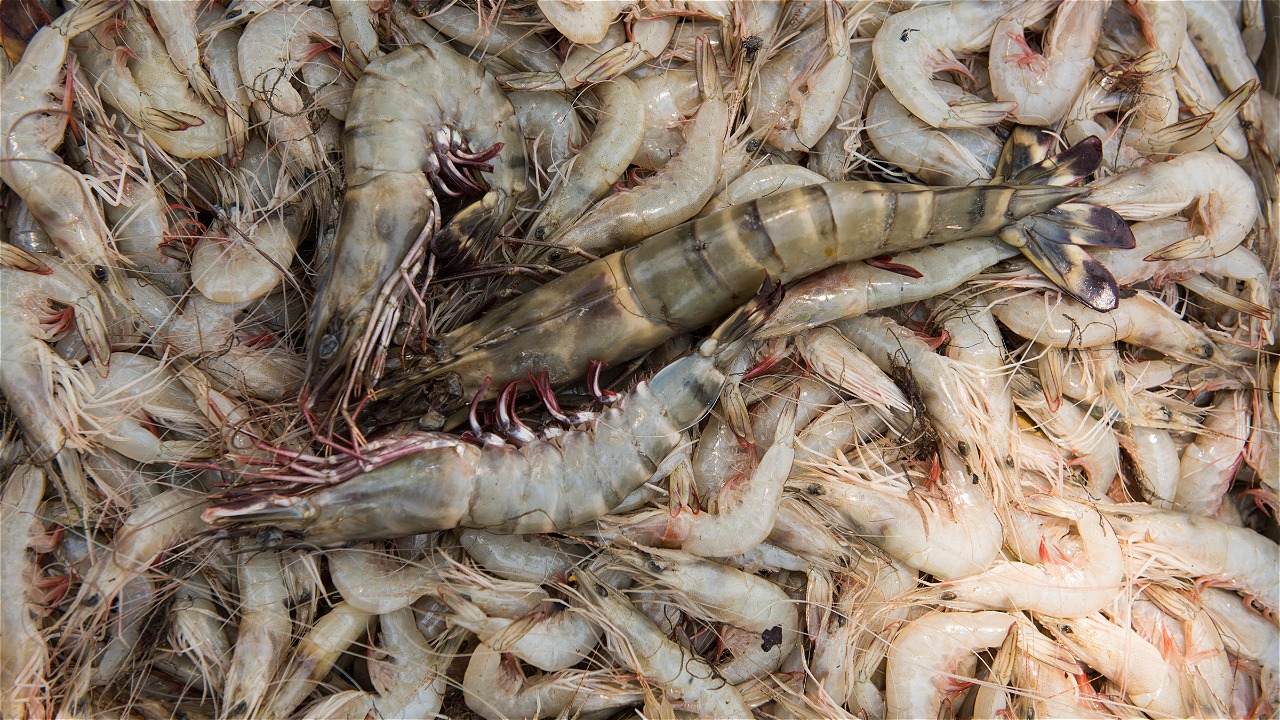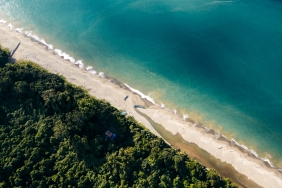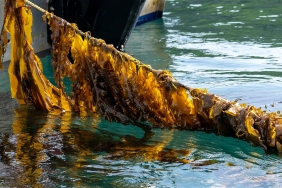SEAFOOD SAVERS TEAMS UP WITH MORE COMPANIES TO REALIZE SUSTAINABLE FISHERIES
Jakarta (4/6) - Four companies signed a Cooperation Agreement to join as members of Seafood Savers, an initiative initiated by WWF-Indonesia to support government policies for the realization of sustainable fisheries.
The four companies are PT Mustika Minanusa Aurora - a traditionally farmed tiger shrimp processor and exporter from Tarakan, PT Samudera Eco Anugrah Indonesia - a Jakarta-based seafood buyer and retailer, and PT Hatindo Makmur and PT Satu Enam Delapan Benoa, a Bali-based tuna processor and exporter. As such, Seafood Savers now works with 7 member companies.
To become a member of Seafood Savers, each company needs to go through a number of assessment and improvement stages, until it is considered ready to undergo fisheries improvement activities (Fisheries Improvement Project/FIP and Aquaculture Improvement Project/AIP) that refer to the Marine Stewardship Council (MSC) and Aquaculture Stewardship Council (ASC) ecolabel standards.
""Companies that are accepted as Seafood Savers members first meet a number of initial improvement steps that demonstrate their commitment to realizing a sustainable fisheries business. Furthermore, the company is required to carry out improvement actions in accordance with the sustainable fisheries standards supported by WWF," said Budi Wardhana, Director of Policy, Sustainability and Transformation of WWF-Indonesia.
As part of fisheries improvement efforts, Seafood Savers members are required to undergo various fisheries improvement activities that include compliance with legality requirements, implementation of environmentally friendly fishing and aquaculture practices, support for governance towards sustainable fisheries, support for research and data collection, and fulfillment of social responsibility. All of these improvement steps are listed in the Fisheries Improvement Work Plan document prepared by the company together with WWF-Indonesia with reference to the MSC and ASC sustainable fisheries standards. Each company is committed to a five-year improvement period with regular monitoring every six months to be carried out by WWF-Indonesia.
In addition to encouraging fisheries improvement in the upstream sector, WWF-Indonesia is also aggressively seeking the involvement of the downstream industry sector. Through the 2015 Responsible Seafood Campaign, WWF-Indonesia invites retail and food service businesses that trade seafood products to participate in a pledge to find out the origin of the seafood products they sell. Companies supporting the pledge are asked to collect as much information as possible about the origin and supply chain of their seafood products, which may include information on where it was caught or farmed, the fishing gear or farming methods used, when it was caught or harvested, the number of businesses along the supply chain, etc.
""The availability of information on the origin of seafood products will help identify improvements to fisheries practices and management. WWF-Indonesia greatly appreciates the retail and foodservice partners who, through this pledge, show their intention to contribute to the realization of sustainable fisheries," said Margareth Meutia, WWF-Indonesia's Seafood Savers Coordinator.
The opportunity is open to retail and foodservice businesses who wish to take the pledge until August 2015. The company that manages to obtain the most information about the origin of its seafood products will be awarded by WWF as "WWF Champion of Seafood Traceability".
For more information, please contact:
Nenden N. Fathiastuti, Public Relations Manager, WWF-Indonesia
mail: nfathiastuti@wwf.or.id, Hp: +62 811 1909 148
Margareth Meutia, Seafood Savers Coordinator, WWF-Indonesia
Email: mmeutia@wwf.or.id, Hp: +62 815 8812 844
Note to Editor:
SEAFOOD SAVERS is a business-to-business platform initiated by WWF-Indonesia to implement efforts to improve fisheries in Indonesia that refer to MSC and ASC ecolabel standards. For more information, visit www.seafoodsavers.org.
MSC or Marine Stewardship Council and ASC or Aquaculture Stewardship Council respectively are international non-profit organizations that develop third-party certification schemes for sustainable capture and aquaculture fisheries.
FIP or Fisheries Improvement Project and AIP or Aquaculture Improvement Project are the improvement processes that a capture fishery or aquaculture unit goes through to meet the sustainability standards set forth in MSC or ASC certification.
Related documents can be downloaded at http://bit.ly/1ALJmda (Photo, Company Profile & Pledge)





